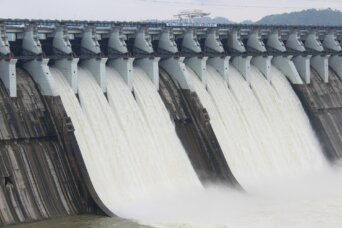- About
- Topics
- Story
- In-Depth
- Picks
- Opinion
- News
- Donate
- Signup for our newsletterOur Editors' Best Picks.Send
Read, Debate: Engage.
| topic: | Conservation |
|---|---|
| located: | Bosnia and Herzegovina |
| editor: | Katarina Panić |
Last month, Banja Luka, the second-largest city of Bosnia and Herzegovina, declared to remain free of dams and hydropower plants (HPPs). It is the largest city in Republika Srpska, one of the three administrative units in the country which still allows the construction of HPPs, although it cancelled the subsidies for this kind of energy. Unlike Republika Srpska, the Federation, the largest part of the country, completely banned the planning and construction of small HPPs.
“The signing of this declaration is a confirmation of the strategic commitment of the city of Banja Luka to preserve its nature and its natural resources and, above all, to preserve the Vrbas river as a symbol of our city,” the mayor of Banja Luka Draško Stanivuković said. “Every dam construction disrupts the river's natural flow and can destroy flora and fauna. Therefore, we must show responsibility and protect what we have, especially in the era of generally irresponsible treatment of nature.”
“According to the Spatial Plan of the Republic of Srpska, the Vrbas canyon and gorge are planned to be a protected area. We would permanently save the river by declaring formal protection there,” Jelena Ivanić from the NGO Centre for the Environment stated.
The country’s environmentalists welcomed the move, which is expected to reduce the irremediable harm that dams cause to the ecosystems in rivers, and the catastrophic consequences they engender for flora and fauna.
“With the city of Banjaluka, a total of 13 municipalities and cities in Bosnia and Herzegovina signed the Declaration ’Dams-Free Municipalities’ and supported this initiative of the Coalition for the Protection of the Rivers of BiH. The initiative is part of the activities jointly implemented by Arnika from the Czech Republic, Coalition for the Protection of Rivers of BiH...," Arnika stated in its press release.
Since the country is divided into entities and cantons, the governing is decentralised and only a limited number of policies are on the state level and applicable to all territories. The environment is not one of them, nor is it among the priorities. However, environmental activists called on politicians not to try to take credit for something they do not deserve.
“The law that stopped the destruction of rivers in the Federation is the result of decades of principled work by the movement for the protection of rivers and water, and the political representatives did only what they should do,” activist Alma Midžić stated. “They are obligated to act in the public interest and behave responsibly towards their voters.”
Photo by Prateek Srivastava

